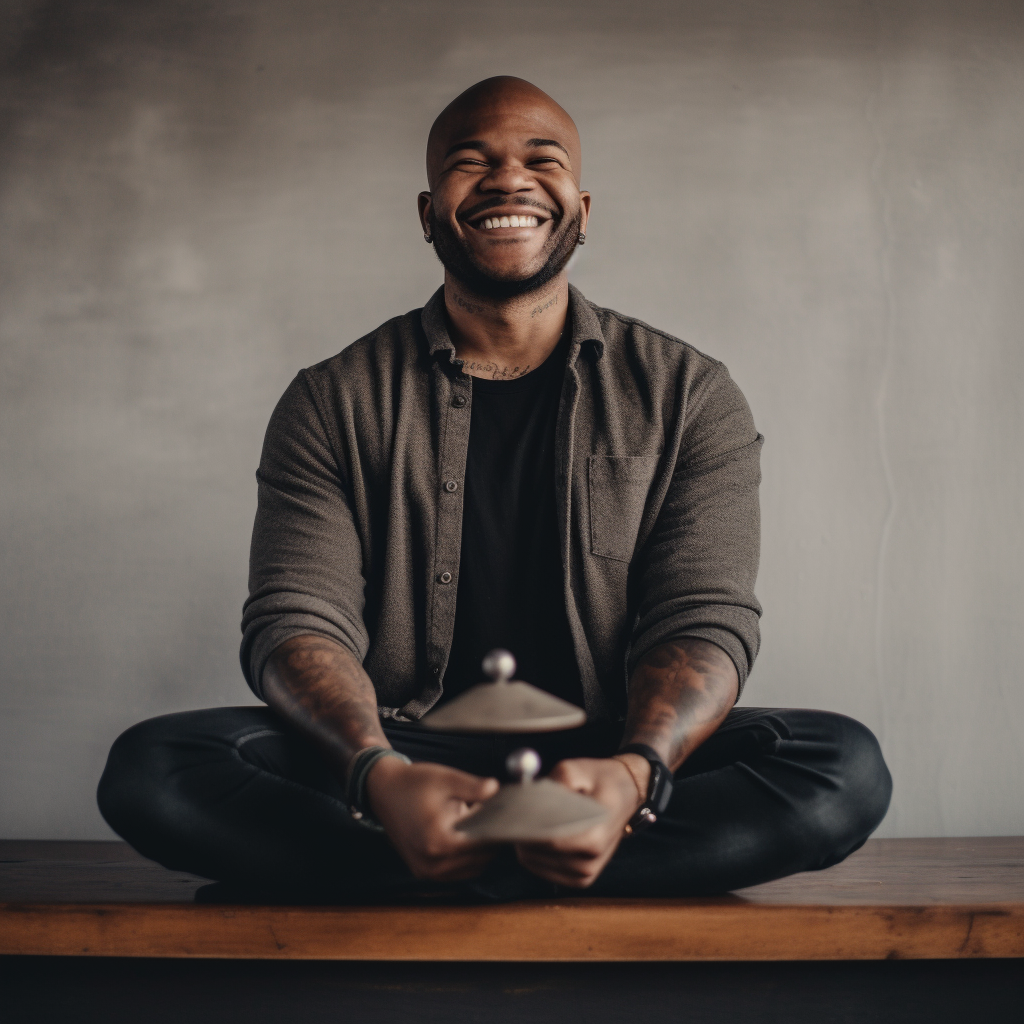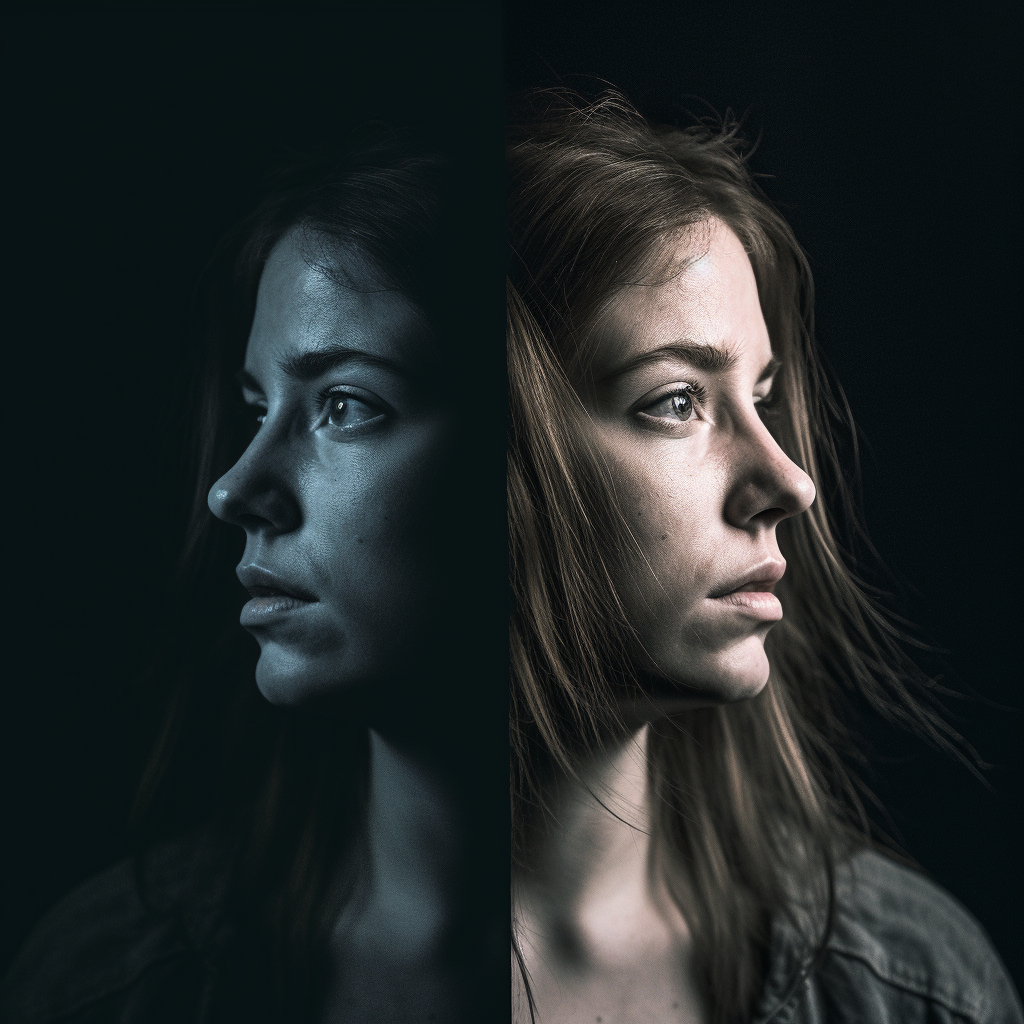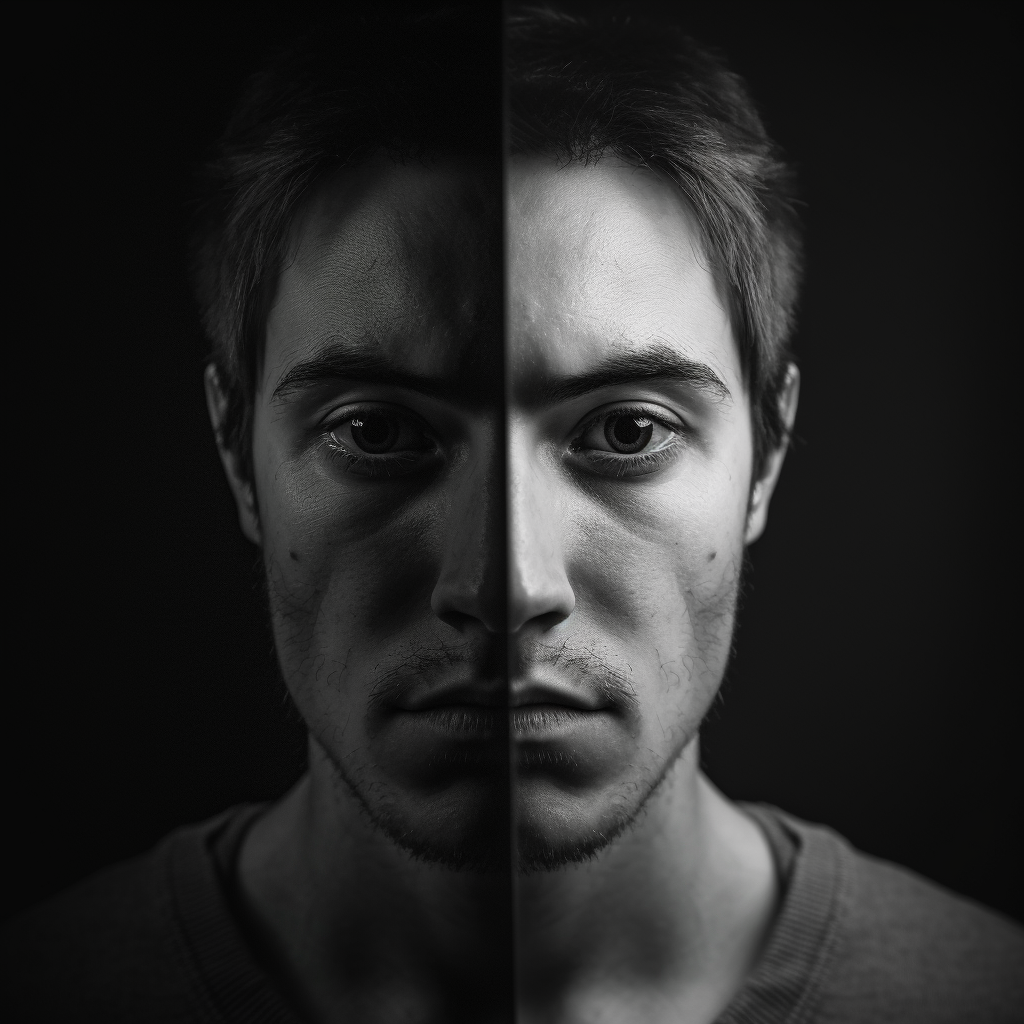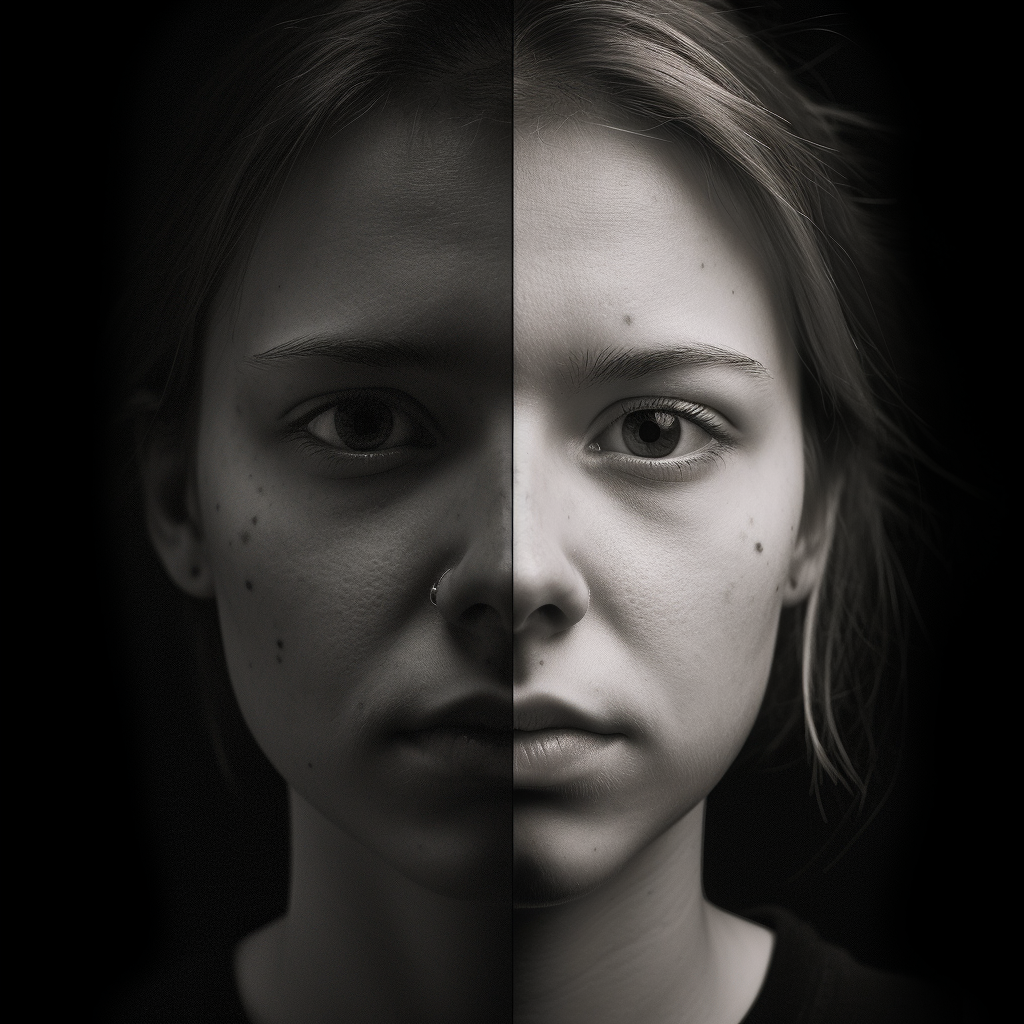Bipolar Disorder
New Jersey's Premiere Intensive Mental Health Program Specialist
WHAT IS BIPOLAR DISORDER?
Bipolar disorder is a mood disorder, often referred to as manic depression, and is more than just mood swings. It's a serious mental health condition characterized by extreme shifts in mood, energy, and activity levels. Living with this condition can be challenging, but you're not alone and there's hope.
At Innerspace Counseling, we understand the intricacies of this journey. We understand that individuals with bipolar disorder do not solely define themselves by their condition. They are unique individuals with dreams, talents, and passions. Here, you will find a nurturing environment dedicated to guiding you towards stability and self-empowerment.

EMBRACE BALANCE AND HARMONY IN LIFE
It's natural to experience mood fluctuations from highs to lows, but when these shifts become extreme and persistent, it could be indicative of bipolar disorder. Fortunately, at Innerspace Counseling, we provide tailored treatment for those grappling with bipolar disorder, especially for those who haven't found success with conventional treatment methods. Discover more about how we can help with our Intensive Outpatient Program (IOP) and Partial Hospitalization Program (PHP), for children, adolescents, adults, perinatal individuals, or connect with our expert team at Innerspace Counseling, in Old Bridge, New Jersey.
SIGNS OF BIPOLAR DISORDER
People experience symptoms of bipolar disorder such as mania (highs) and depression (lows).
Manic episodes might include feelings of heightened energy, restlessness, reduced need for sleep, and racing thoughts. During such phases, individuals may feel elated, but they might also feel irritable or become prone to making impulsive decisions.
Depressive episodes manifest as feelings of sadness, fatigue, hopelessness, and a loss of interest in daily activities. It’s more than just a bad day; it’s a consistent, prolonged period of intense emotions and fatigue.
Moreover, there are different bipolar types, each with its unique pattern of mood shifts. The team at Innerspace Counseling has training to recognize and deal with these subtleties. They can assist you in effectively handling yours or your loved ones' condition. f you've noticed any of these signs, get in touch with our mental health specialists today!

THERE ARE MANY DIFFERENT TYPES OF BIPOLAR DISORDERS.
Often viewed as a single condition, there's actually a broad spectrum. To understand and treat, it's important to know the different bipolar types (Bipolar I, Bipolar II, Cyclothymic, Other specified and unspecified bipolar disorders) each with their own characteristics and challenges.
We can improve treatment and support for individuals with bipolar disorder by understanding the various types of the condition. This will allow us to cater to each person's specific needs.

BIPOLAR I DISORDER
Often seen as the most severe form, individuals with Bipolar I Disorder experience intense emotional highs and lows. During manic episodes, which can last for a week, people may feel very energetic, need less sleep, and act more impulsively. These episodes can be very intense and may require hospitalization for the person's safety, disrupting their daily life. Individuals can juxtapose these manic episodes with depressive periods, characterized by feelings of hopelessness, disinterest in daily activities, and pervasive sadness.

BIPOLAR II DISORDER
While it shares some similarities with Bipolar I, Bipolar II is distinct in its presentation. Those diagnosed primarily face depressive episodes, punctuated by shorter, less intense periods known as hypomanic episodes. Hypomania is not as severe as Bipolar I, but it can still cause high mood, more energy, and impulsive behavior. It's essential to recognize and address these episodes as they can influence decision-making and daily activities.

CYCLOTHYMIC DISORDER (OR CYCLOTHYMIA)
It is a milder form of bipolar disorder with less severe and longer-lasting mood changes. Over a span of at least two years, individuals with this disorder might fluctuate between mild depression and hypomanic symptoms. Mood changes in bipolar disorder can impact relationships and daily life. However, these changes may not be as intense as in other types of the disorder.

OTHER SPECIFIED & UNSPECIFIED BIPOLAR AND RELATED DISORDERS
The bipolar spectrum is big, and not everyone fits into the mentioned categories. We reserve this designation for individuals whose symptoms do not strictly align with the criteria for Bipolar I, II, or Cyclothymia, but still experience significant mood disturbances. This could include rapid cycling of moods or other variations that impact their well-being.

COMPREHENSIVE BIPOLAR DISORDER TREATMENT
At Innerspace Counseling, we deeply understand the complexities of bipolar disorder and believe that every individual deserves a unique path to healing. Our approach is comprehensive, combining personalized counseling tailored to each person's experiences and objectives, with cutting-edge strategies like Dialectical Behavior Therapy (DBT) to ensure emotional balance. Our expert therapists guide clients in recognizing and managing the triggers of their mood swings, and through group therapy sessions in our IOP and PHP programs, individuals can share, learn, and better grasp the cyclical nature of their condition while connecting with peers on similar journeys. Recognizing the daily life challenges posed by bipolar episodes, we provide structured support to help individuals navigate these periods. Additionally, our psychiatrists offer expert medication management, ensuring each client receives the best possible treatment tailored to their needs. Our commitment is to provide holistic, custom treatments addressing the multifaceted challenges of bipolar disorder. Schedule a session for a tailored treatment journey with us.

WHY BIPOLAR TREATMENT IS NECESSARY
Bipolar disorder, with its deep-seated impacts on thoughts, behaviors, and relationships, is more than mere mood fluctuations. If left untreated, individuals may encounter various issues. These include engaging in dangerous actions, having challenging relationships, and experiencing poor physical health. Examples of poor physical health may include sleep problems or drug abuse.
Treatment is important for managing symptoms, ensuring safety, improving life quality, and building strong relationships. Getting treatment helps people learn their triggers, develop coping skills, and benefit from support like group therapy and peer help. Essentially, treatment is about more than symptom control—it's about living a life of hope, stability, and fulfillment.
EMPOWERMENT THROUGH KNOWLEDGE
People with bipolar disorder frequently ask, "how common is bipolar?", know that millions worldwide navigate the complexities of the disorder. You are part of a vast community striving for understanding, management, and personal growth amidst the condition.
People often ask, “what is the bipolar onset age?” The bipolar onset age typically ranges from late adolescence to early adulthood. Most individuals start showing symptoms around the average onset age of 25. However, bipolar disorder can emerge at various times in a person's life:
- Early-Onset Bipolar Disorder: This category is for individuals who begin exhibiting bipolar symptoms before the age of 18. In some rare cases, symptoms can manifest in children as young as six.
- Late-Onset Bipolar Disorder: Here, the disorder starts post-50.
Various reasons, such as misinterpretation of symptoms or other factors, can delay the diagnosis of bipolar disorder. Even though there are specific age ranges typically associated with the onset of the disorder, this delay can still occur.
And if you're pondering, "is bipolar a disability?" Although it can be difficult, it doesn't have to stop you from reaching your goals or determining who you are.
CONNECT WITH INNERSPACE COUNSELING!
At Innerspace Counseling, we're dedicated to providing holistic care for individuals at various life stages grappling with all mood disorders. In Old Bridge, NJ, we have programs for children, adolescents, adults, and pregnant/postpartum individuals. We call these programs Intensive Outpatient Program (IOP) and Partial Hospitalization Program (PHP).
We offer assistance for intensive mental health needs to you and your loved ones. Our programs provide support and tools to help achieve a balanced and fulfilling life.
Curious about how we can assist? You’re not alone. Reach out to us. Your journey towards better mental well-being is just a call away.
Schedule Your Consultation Today
Do not fill out this form if you are a solicitor.




